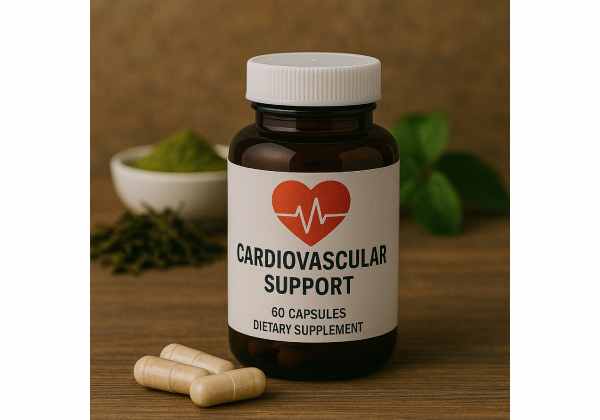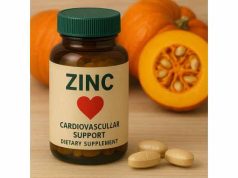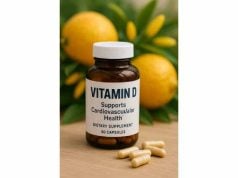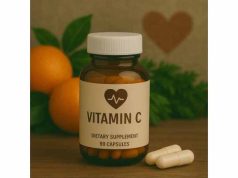
Green tea extract, especially its chief bioactive component epigallocatechin gallate (EGCG), has earned broad acclaim for promoting heart health and mitigating the risk of cardiovascular disorders. Renowned for its potent antioxidant profile, green tea extract is believed to assist in stabilizing blood pressure, supporting healthy cholesterol levels, and enhancing arterial flexibility—all integral to a robust cardiovascular system. This supplement’s anti-inflammatory and lipid-lowering actions further highlight its role in preventing serious heart-related conditions. In the sections below, we delve into green tea extract’s origins, explore its fundamental mechanisms, and examine evidence-backed advantages, dosage recommendations, and safety considerations to help you harness its full potential.
Table of Contents
- Deep Dive into Green Tea Extract (EGCG)
- Mechanisms and Biological Actions of EGCG
- Clinically Supported Heart-Health Benefits
- Optimal Intake and Precautionary Notes
- Green Tea Extract (EGCG) FAQ: Top Queries Answered
- Key References and Scientific Publications
Deep Dive into Green Tea Extract (EGCG)
Green tea extract is derived from the leaves of the Camellia sinensis plant, the same source for green, black, and oolong teas. What sets green tea apart is its minimal oxidation during processing. This gentle handling preserves its abundant catechins—most notably EGCG—that are tied to multiple health-enhancing properties. These include antioxidant, anti-inflammatory, and cardioprotective effects that may reduce the incidence of chronic disease.
Historical Roots and Cultural Importance
Throughout East Asian history, green tea has served not only as a beverage but also a symbol of hospitality, mindfulness, and wellness. Ancient practitioners often relied on its brewing for stimulation, mental clarity, and relief from minor ailments. Early observations concerning green tea’s ability to uplift energy and improve digestion helped shape its status as an integral part of many cultural ceremonies, such as the Japanese tea ceremony. The current global fascination with green tea extract stems from ongoing scientific research into its beneficial properties, including its effect on cardiovascular well-being.
Main Active Components
Although green tea boasts a range of bioactive substances—amino acids like theanine, vitamins, minerals, and other phytochemicals—the standout is the catechin family. The most abundant and potent is EGCG, known for:
- High Antioxidant Capacity: EGCG combats free radical damage, helping slow the oxidative processes that contribute to cardiovascular complications and aging.
- Anti-Inflammatory Influence: It appears to neutralize certain pro-inflammatory pathways, which may otherwise fuel arterial plaque development.
- Metabolic Support: By positively affecting energy expenditure and lipid metabolism, EGCG helps in promoting a healthier metabolic profile.
Green Tea vs. Other Teas
Camellia sinensis leaves transform into different teas depending on how they are processed. Black tea undergoes more extensive oxidation, which yields new compounds but diminishes catechin content relative to green tea. Oolong tea lies in between in terms of oxidation level and catechin preservation. Green tea’s minimal processing is why it is renowned for higher levels of EGCG. When concentrated, green tea extract can offer a more potent dose of these beneficial compounds than a standard cup of brewed tea.
Extraction and Standardization
Modern manufacturing processes often use water or alcohol to draw out the essential catechins from dried leaves. The resulting extract is typically standardized to contain a specific percentage (often 50% or more) of total catechins, ensuring consistent potency. Beyond the beneficial catechins, certain extracts may also retain trace amounts of caffeine and other components contributing to green tea’s distinct character. This standardization allows consumers to verify the EGCG content listed on product labels, ensuring they receive the advertised dosage.
Varied Applications
- Encapsulation and Tablets: The most common forms, typically featuring standardized catechin or EGCG concentrations, enabling precise dosing.
- Powdered Supplements: Easily mixed into smoothies or beverages, though taste may be an issue due to green tea’s natural bitterness.
- Functional Foods and Drinks: Some health bars, shakes, and nutritional beverages add green tea extract to enhance their antioxidant content.
- Topical Products: Beauty formulations often include green tea extract for its soothing and antioxidant properties, though this usage focuses more on skin benefits than on cardiovascular support.
Sustainability and Ethical Sourcing
Environmental awareness is rising among consumers, leading them to look for fair-trade or organic certifications. Responsibly sourced green tea ensures the environment is treated with care, while also offering farmers equitable wages. Such certifications can further guarantee minimal pesticide use and more natural farming methods that preserve the nutritional integrity of the leaves.
Link to Heart Health
Growing consumer interest in heart-healthy supplements has spotlighted green tea extract. Its demonstrated effect on cholesterol regulation, blood pressure moderation, and other metabolic variables cements its place in many cardiovascular support regimens. While not a cure-all, green tea extract can become a crucial element of a holistic strategy, working alongside balanced diets, regular exercise, and other lifestyle interventions to promote comprehensive heart wellness.
Mechanisms and Biological Actions of EGCG
Green tea extract’s positive impact on cardiovascular health stems from a complex interplay of biochemical mechanisms involving antioxidants, anti-inflammatory agents, and enzymatic modulation. While the body’s cardiovascular system is intricate, EGCG appears to provide multiple supportive pathways, helping to maintain a healthy environment for the heart and blood vessels.
Potent Antioxidant Capabilities
Oxidative stress emerges when free radicals accumulate faster than the body can neutralize them, resulting in damage to cells, proteins, and DNA. EGCG excels at scavenging harmful molecules, preventing them from inciting the inflammatory cascades that often pave the way for chronic issues like atherosclerosis. By binding to free radicals, EGCG helps preserve vascular integrity and mitigate the development of plaque formations in arteries.
Inhibition of Oxidized LDL
LDL (“bad”) cholesterol is more likely to contribute to plaque build-up when it becomes oxidized. EGCG has shown effectiveness in hindering LDL oxidation, thus reducing the oxidative stress that fosters arterial blockages. Stable LDL is less prone to lodge in arterial walls, diminishing one of the major catalysts for heart disease. This protective mechanism underscores the synergy between dietary strategies, such as limiting saturated fats, and supplementation approaches like green tea extract.
Regulation of Inflammatory Pathways
Low-grade, chronic inflammation plays a central role in the onset and acceleration of cardiovascular complications. By downregulating certain pro-inflammatory cytokines—like IL-1, IL-6, and TNF-alpha—EGCG helps reduce systemic inflammation. Studies also suggest that it may inhibit the nuclear factor kappa B (NF-κB) pathway, a critical mediator of inflammation and immune function. Decreasing these inflammatory processes can help alleviate stress on blood vessels and maintain more stable blood flow.
Endothelial Function and Nitric Oxide
The endothelium, the inner lining of blood vessels, controls vascular tone, blood clotting, and overall circulation. Nitric oxide (NO) production is a core part of endothelial activity, facilitating vasodilation and normal blood flow. EGCG is believed to boost the bioavailability of nitric oxide in arteries, supporting smoother and broader blood vessel dilation. This effect not only assists in blood pressure regulation but also lowers wear and tear on the heart.
Impact on Platelet Aggregation
Platelets are essential for clot formation, preventing blood loss when injuries occur. However, excessive platelet aggregation can lead to thrombosis, increasing the risk of heart attacks and strokes. Some studies indicate that EGCG may hinder platelet activity, promoting healthy circulation without excessively thinning the blood. When combined with other heart-friendly tactics—like aspirin therapy under physician guidance—this moderation of platelet aggregation can be an important piece of the cardiovascular puzzle.
Metabolic and Hormonal Modulation
Beyond its effects on oxidation and inflammation, EGCG can also influence certain metabolic and hormonal aspects linked to heart health:
- Insulin Sensitivity: Enhanced insulin sensitivity helps maintain balanced blood sugar levels, which in turn cuts the risk of conditions like type 2 diabetes that often correlate with cardiovascular disease.
- Adiponectin Elevation: Adiponectin is a hormone produced by fat cells that supports glucose regulation and fatty acid oxidation. Higher adiponectin levels correlate with a lower risk of heart disease. EGCG intake may favorably influence adiponectin activity.
Possible Brain-Heart Interplay
Emerging research hints that green tea extract’s neuroprotective traits might indirectly aid cardiovascular health. Chronic stress and poor mental well-being can exacerbate hypertension and other risk factors. By promoting calmness and normal neurological function—partly through theanine and EGCG synergy—green tea extract may foster a more balanced physiological state that reverberates throughout the cardiovascular network.
Synergistic Interactions with Other Nutrients
EGCG’s versatility allows it to work in conjunction with various heart-supportive compounds. Coenzyme Q10, B vitamins, and magnesium are frequently suggested to nurture cardiac vitality. For instance, combining green tea extract with coenzyme Q10 may amplify antioxidant protection, reinforcing both molecules’ roles in staving off oxidative harm within cells. However, it is advisable to confirm such combinations with a healthcare expert to avoid overlapping effects or unintended interactions.
Summary of Mechanistic Pathways
EGCG takes a multifaceted approach: it safeguards cells from oxidative assault, tones down the body’s inflammatory responses, assists in maintaining healthy lipid profiles, and supports blood vessel flexibility. These overlapping pathways enable green tea extract to make a substantive impact on arterial health and heart performance. While genetic, lifestyle, and environmental factors also influence cardiovascular outcomes, EGCG’s broad reach solidifies its position as a valuable ally in comprehensive heart care.
Clinically Supported Heart-Health Benefits
Extensive research over recent decades has established a link between consistent green tea consumption and positive cardiovascular outcomes. As scientists investigate green tea extract, increasingly robust evidence is emerging to underscore its efficacy in supporting heart health and preventing vascular complications. Below, we evaluate some of the most critical findings in various domains.
Blood Pressure and Hypertension
Numerous trials have examined how green tea extract influences blood pressure. While the results can vary according to participant health status, dosage, and study design, a consensus points to modest blood pressure reductions:
- Systolic and Diastolic Improvements: Consistent supplementation can lower systolic (the top number) and diastolic (the bottom number) pressure, although the magnitude is often small. Even slight decreases in blood pressure can reduce the risk of heart attack or stroke.
- Mechanistic Basis: Researchers link these benefits partly to enhanced vasodilation through improved nitric oxide activity, as well as the extract’s antioxidant and anti-inflammatory dynamics.
Cholesterol Management
One of the more celebrated aspects of green tea extract for heart health is its potential to optimize the cholesterol profile:
- Lower LDL and Total Cholesterol: Studies suggest that EGCG interacts with dietary fats and cholesterol absorption in the intestines, leading to modest drops in LDL (“bad”) and total cholesterol levels.
- Elevated HDL (“Good”) Cholesterol: In some studies, participants also experienced slight increases in HDL, which acts to remove cholesterol from blood vessels, diminishing plaque buildup.
While the extract may not outperform powerful statin medications, its natural lipid-lowering effect can be valuable for individuals seeking an adjunctive or preventive measure in controlling cholesterol.
Anti-Atherosclerotic Effects
Plaque formation, or atherosclerosis, arises when fats, cholesterol, and cellular debris accumulate along arterial walls. EGCG’s ability to combat oxidative stress curtails the oxidation of LDL particles, a key factor in plaque progression. Research also indicates that it may slow the formation of foam cells, which develop during early atherogenic processes. By deterring these cellular events, green tea extract may offer significant long-term advantages in maintaining clear, flexible arteries.
Weight Management and Metabolic Benefits
Carrying excess weight, particularly around the abdomen, raises the likelihood of hypertension, elevated cholesterol, and type 2 diabetes. EGCG may facilitate weight management by:
- Increasing Fat Oxidation: Some studies show that green tea extract augments the body’s capacity to burn fat during both rest and exercise.
- Enhancing Metabolic Rate: A slight uptick in daily calorie burn may help individuals avoid the slow weight gain that can strain the heart over time.
- Mitigating Insulin Resistance: By supporting healthy blood sugar control, EGCG reduces one of the major risk factors for cardiovascular complications.
While weight loss outcomes can differ substantially from person to person, green tea extract’s metabolic assistance is worth considering as part of a multi-faceted approach to healthy body composition.
Cardioprotective Antioxidant Status
Many chronic conditions originate from or are exacerbated by excess free radicals. By reinforcing the body’s defenses against oxidative harm, green tea extract:
- Prevents Endothelial Damage: Protects delicate blood vessels from cellular injury that can precipitate scarring or narrowing.
- Fosters Anti-Aging Effects: By preserving cellular structures, EGCG may assist in staving off age-related degeneration that involves heart tissues and blood vessels.
Inflammatory Markers
Monitoring inflammatory markers such as C-reactive protein (CRP) can provide insight into chronic, systemic inflammation levels. Elevated CRP correlates with a higher risk for heart disease. Several investigations report that individuals supplementing with green tea extract exhibit lower CRP levels, pointing to a diminished inflammatory state that could lessen cardiovascular strain.
Stroke and Heart Attack Risk Reduction
While direct evidence about green tea extract alone preventing strokes or heart attacks remains limited, observational data on habitual green tea drinkers suggests a lower incidence of major cardiovascular events. By favorably affecting blood vessel function, lipid profiles, and other metabolic variables, green tea extract potentially contributes to lowering risk. However, controlling for confounding factors—like overall diet and lifestyle—remains critical in interpreting these findings.
Group-Specific Observations
In populations at higher cardiovascular risk—like older adults, those with metabolic syndrome, or individuals with a family history of heart disease—green tea extract has often shown more pronounced effects on blood pressure, cholesterol, and inflammation. This indicates potential utility as a supportive measure for vulnerable groups aiming to manage or avert heart-related problems.
Integrating Research into Practice
Though individual responses differ based on genetic predispositions, baseline health status, and lifestyle choices, green tea extract consistently emerges as an ally for heart and vascular resilience. These observed benefits rest on the foundation of correct dosage and quality, as well as an overall healthy routine. Pairing green tea extract with balanced nutrition, regular exercise, and stress management can further amplify protective effects, creating a robust blueprint for long-term cardiovascular wellness.
Optimal Intake and Precautionary Notes
Appropriate usage of green tea extract (EGCG) requires balancing effective dosages with potential side effects or interactions. While considered safe for most people, adopting a mindful approach can promote the best results and minimize any adverse events.
Recommended Dosage Guidelines
- General Maintenance: For everyday heart health support, daily doses typically range from 250 mg to 500 mg of green tea extract, standardized for EGCG content. This provides enough EGCG for antioxidant and cardiovascular benefits without heavy caffeine exposure.
- Targeted Support: Some studies use dosages closer to 800 mg or higher for weight management or cholesterol reduction, but these higher amounts should be supervised by a healthcare professional.
- Realistic Comparison to Brewed Tea: One cup of brewed green tea usually contains 50–100 mg of EGCG, though exact levels vary. Supplements, in contrast, deliver a concentrated, consistent dose.
Timing and Administration
Green tea extract supplements can be taken with or between meals, though some individuals find that consuming them alongside food minimizes digestive discomfort. When high dosages or combinations with caffeine are used, splitting the total daily amount into morning and afternoon doses may maintain steady catechin levels.
Form and Label Checking
Not all supplements are created equally, so it’s crucial to verify:
- Standardized Catechin Content: Look for labels specifying total catechins and EGCG amounts to ensure consistent and reliable dosing.
- Caffeine Content: Some extracts are decaffeinated, while others retain varying degrees of natural caffeine. High caffeine consumption may cause jitteriness, elevated heart rate, or sleep disturbances.
- Third-Party Testing: Certification from organizations like USP or NSF can reassure users of a product’s purity, potency, and safety.
Potential Side Effects
Green tea extract is well-tolerated by most healthy adults, but certain side effects can appear:
- Mild Gastrointestinal Issues: Some users may experience stomach upset, diarrhea, or nausea. Reducing dosage or taking with food often resolves these complaints.
- Headaches and Dizziness: High-dose supplements, particularly those containing caffeine, may induce headaches or lightheadedness. Lowering intake or switching to a decaffeinated version might help.
- Elevated Heart Rate or Insomnia: Excess caffeine could cause restlessness or disrupted sleep. Decaffeinated varieties may be preferable for caffeine-sensitive individuals or those who have trouble sleeping.
Drug Interactions
Consult a qualified healthcare professional if you take prescription medications or have a chronic health condition. Of particular concern are:
- Blood Thinners (Anticoagulants): Green tea extract can have antiplatelet effects, potentially intensifying the action of drugs like warfarin or aspirin.
- Blood Pressure Medications: When combined with medication designed to lower blood pressure, green tea extract could lead to excessively low readings if dosages aren’t carefully monitored.
- Stimulants and Certain Antidepressants: Co-administration might elevate heart rate or raise blood pressure.
- Chemotherapy Agents: Some catechins may interfere with specific cancer treatments, highlighting the importance of personalized medical guidance.
Special Populations
- Pregnant or Breastfeeding Women: Limited research exists on high-dose catechins’ effects during pregnancy or lactation. It’s wise to consult a physician before introducing green tea extract supplements.
- Individuals with Liver Conditions: In rare cases, high doses have correlated with liver stress. While these instances are uncommon, those with preexisting liver ailments should exercise caution and discuss supplementation with their healthcare provider.
- Children and Adolescents: Catechin-rich beverages can be safe in moderate amounts, but pediatric dosage for concentrated extracts lacks comprehensive study. Expert supervision is strongly recommended.
Strategies for Maximizing Benefits
- Combine with a Healthy Lifestyle: EGCG’s cardiovascular support works best in tandem with balanced nutrition, routine physical activity, and consistent sleep patterns.
- Stay Hydrated: Green tea extract, particularly with caffeine, has mild diuretic effects. Ensure adequate fluid intake to maintain hydration, especially during exercise or warm weather.
- Moderate Caffeine Intake: If you already consume coffee or energy drinks, keep track of total daily caffeine to avoid side effects like anxiety or heart palpitations.
- Monitor Progress: Use a blood pressure cuff, keep track of lipid profile changes, or consult with a physician to evaluate how green tea extract influences your heart health.
Conclusion on Usage and Care
Green tea extract can be a valuable tool in nurturing heart health—protecting arterial function, aiding in lipid management, and offering antioxidant support. As with all supplements, tailored dosing and diligent oversight are key. By staying attuned to recommended usage guidelines, understanding possible interactions, and working closely with healthcare professionals, users can safely incorporate green tea extract into their daily routines and enjoy its cardioprotective advantages.
Green Tea Extract (EGCG) FAQ: Top Queries Answered
Below are concise answers to frequently asked questions about green tea extract, focusing on its impact on cardiovascular health and overall wellness.
Is green tea extract for heart health effective for everyone?
Green tea extract supports most adults by providing antioxidants and promoting healthy blood pressure and lipid levels. However, individual outcomes may vary. Underlying medical conditions, lifestyle choices, and genetics all influence the supplement’s efficacy in enhancing cardiovascular performance.
Can green tea extract for cardiovascular health replace prescription medications?
No, green tea extract should not serve as a replacement for prescribed heart medications. It can be used alongside professional treatment plans to potentially boost cardiovascular benefits. Always consult your physician before making any changes to existing medication regimens.
How quickly do green tea extract benefits for heart health manifest?
Results may emerge in a few weeks, with notable improvements in parameters like blood pressure or cholesterol often seen within two to three months. Consistency in dosing and a healthy lifestyle can speed up observable positive outcomes.
Does green tea extract help cardiovascular function and weight management simultaneously?
Yes, green tea extract may support both heart function and weight control by promoting fat oxidation, improving lipid profiles, and reducing inflammation. However, to sustain meaningful improvements, pair supplementation with balanced eating and regular exercise.
Are there any side effects of green tea extract for heart health?
Mild side effects such as stomach upset, jitteriness, or headaches may arise, often linked to caffeine content. Lowering the dose or choosing a decaffeinated option may mitigate these problems. Consult a healthcare expert if symptoms persist or worsen.
Can I combine green tea extract with other supplements?
Green tea extract frequently pairs well with vitamins, minerals, and specific herbal remedies. Nonetheless, possible additive effects—particularly regarding blood pressure or blood thinning—warrant professional guidance. Always discuss new or combined supplementation with your healthcare provider.
Key References and Scientific Publications
- Kuriyama, S. “The relation between green tea consumption and cardiovascular disease as evidenced by epidemiological studies.” Journal of Nutritional Science and Vitaminology, vol. 54, no. 1, 2008, pp. 1–6.
- Suzuki, E., et al. “Effect of green tea catechins on plasma LDL and HDL cholesterol concentrations in healthy volunteers.” Clinical Biochemistry, vol. 45, no. 3, 2012, pp. 218–223.
- Hodgson, J. M., et al. “Effects of catechins and caffeine on blood pressure.” The American Journal of Clinical Nutrition, vol. 85, no. 3, 2007, pp. 718–730.
- Thielecke, F., & Boschmann, M. “The potential role of green tea catechins in the prevention of the metabolic syndrome – a review.” Phytochemistry, vol. 70, no. 1, 2009, pp. 11–24.
- Huang, H. C., & Liao, C. H. “Green tea polyphenol epigallocatechin-3-gallate attenuates lipid accumulation and oxidative stress in the cardiovascular system.” Journal of Medicinal Food, vol. 23, no. 6, 2020, pp. 584–591.
These resources offer deeper insights into green tea extract’s cardioprotective mechanisms, including its antioxidant capacity, ability to regulate cholesterol, and potential for modest blood pressure reductions. Reviewing the original studies can provide a more nuanced understanding and help guide personalized supplementation approaches.
Disclaimer:
The information provided in this article is for educational purposes only and is not a substitute for professional medical advice. Always consult your healthcare provider for personalized guidance regarding supplements, treatments, and dietary changes.
If you found this article useful, please share it on Facebook, X (formerly Twitter), or any platform you prefer. Let’s work together to spread the word about heart health and stay connected on social media!






